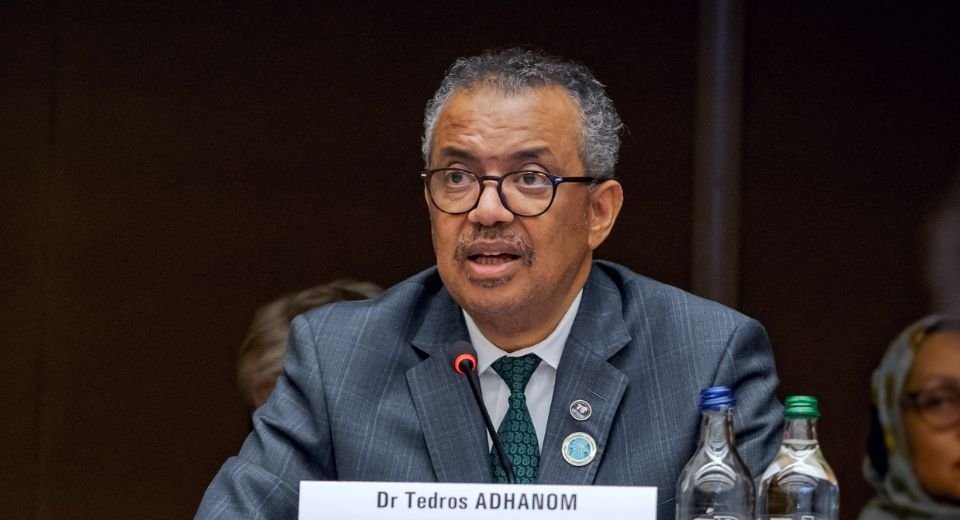HQ Team
February 3, 2025: Tedros Adhanom Ghebreyesus, the Director-General of the World Health Organization, has given a four-point rebuttal to the US government’s accusations against the global health agency after the nation withdrew from being a member.
Tedros, speaking at the body’s executive board meeting, said he regretted that President Donald Trump signed an Executive Order announcing his intention to withdraw the United States from WHO. “We hope the US will reconsider.”
The order said that WHO has “failed to adopt urgently needed reforms,” according to Tedros.
“As this board is aware, over the past seven years, under the guidance and governance of Member States, WHO has implemented the deepest and most wide-ranging reforms in the Organization’s history,” Tedros told member nation delegates.
“We have implemented 85 of the 97 reforms proposed in the Secretariat Implementation Plan on reform.”
Reliance on traditional donors
He said WHO would welcome suggestions from the United States and all member states for “how we can serve you and the people of the world better. So, although we are doing a lot of reform, additional is welcome.”
On US allegations that WHO “demands unfairly onerous payments from the US, out of proportion with what other countries contribute,” Tedros said, “some countries choose to make higher voluntary contributions than others.”
Reducing WHO’s over-reliance on a handful of traditional donors has been one of the major areas of transformation, he said.
WHO plans to broaden the donor base and “will over the long term reduce the burden of financing for traditional donors, including the US.”
He urged the US “for our shared vision to put WHO on a more sustainable financial footing.”
$400 million reduction
According to a WHO document, the global health body will cut its base programmes section of the budget from $5.3 billion to $4.9 billion — about the same as the base programme budget for the previous period, 2024-2025.
An advisory committee “discussed and agreed to propose to decrease the base segment of the Proposed programme budget 2026–2027 to US$ 4.9 billion.
“The Committee raised the concern that a US$ 4.9 billion budget reflected a negative nominal growth compared with the prior biennium and that this should be taken into account in future budget discussions.”
The WHO panel stated: “At the same time, the committee acknowledged that with the departure of the biggest financial contributor, the budget could not be “business as usual,” and that the principle of realistic budgeting was paramount to ensure alignment with economic and financial realities.”
Trump’s Presidential Order refers to WHO’s alleged “mishandling of the COVID-19 pandemic and other global health crises,” the WHO chief said.
Pandemic agreement
“From the moment we picked up the first signals of “viral pneumonia” in Wuhan (China), we asked for more information, activated our emergency incident management system, alerted the world, convened global experts, and published comprehensive guidance for countries on how to protect their populations and health systems,” and all of this happened before the first death from this new disease was reported in China on January 11, 2020.
“Of course, there would be challenges and weakness, and there have been multiple independent reviews of the global response to COVID-19, with more than 300 recommendations to address the challenges or the weaknesses.”
In response to those recommendations, WHO and its member states have taken many steps to strengthen global health security, he said.
The member states of the WHO have committed to concluding negotiations on the Pandemic Agreement in time for this year’s World Health Assembly, Tedros said.
‘Scientific evidence’
The Executive Order also stated that WHO has an “inability to demonstrate independence from the inappropriate political influence” of its members, Tedros said.
“Our member states ask us for many things, and we always try to help as much as we can. But when what they ask is not supported by scientific evidence, or is contrary to our mission to support global health, we say no, politely.
“And you have seen me doing that many times. As member states know, that is what we have done on several occasions to countries of all income levels in all regions.








